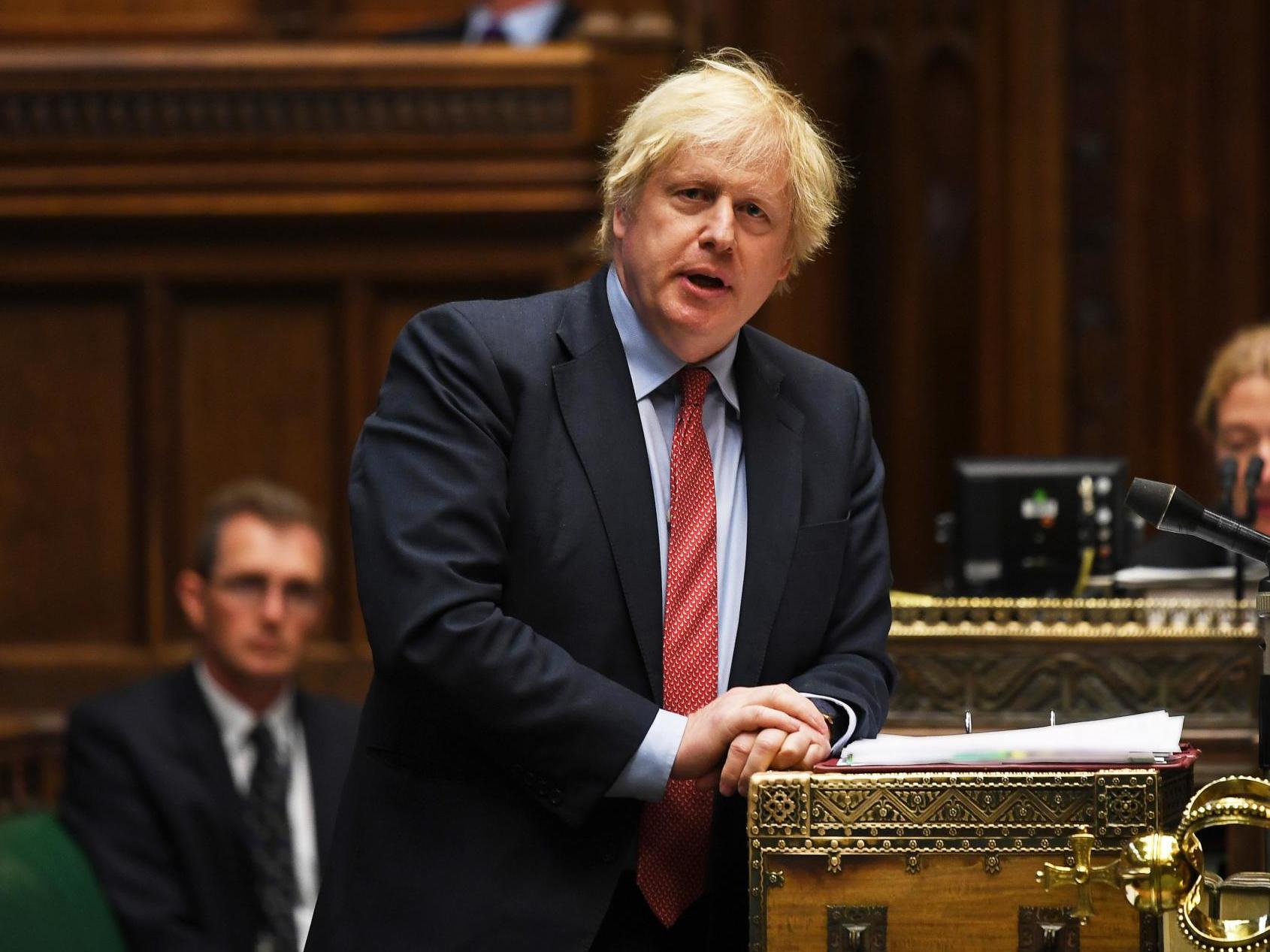Boris Johnson supports foreign aid so much he’s closed its department
The prime minister may want to strengthen his support with those voters who are opposed to foreign aid altogether – without actually saying so, writes John Rentoul


Why? And why now? The mystery of the prime minister’s decision to close the Department for International Development (DfID) remained unresolved after he made his statement and answered questions on it for an hour.
MPs on both sides of the House, and former prime ministers outside it, were left scratching their heads. Maybe it is something Boris Johnson decided when he was foreign secretary, and was determined to see through as prime minister, but why did he persist with it in the middle of the coronavirus crisis?
“Amid the pandemic, the House will ask whether this is the right moment to reorganise Whitehall,” Johnson said. But he didn’t answer the question, beyond some bureaucratic jargon about greater coherence.
Keir Starmer was as baffled as the rest of us. “This statement is intended to deflect attention,” he said, referring to this morning’s unemployment figures, and the U-turn on free school meals which had been announced just before the prime minister came to the Commons.
That doesn’t seem very plausible. All media outlets, including this one, are more interested in Marcus Rashford’s victory on behalf of 1.3 million pupils who will now get help with food over the summer than in the changing of brass plates in Whitehall.
The closest we could get to Johnson’s true motive, a nebulous entity, was in two or three of his more colourful answers today. Liberated from the text of his statement, which he read out word for word, he declared: “For too long, the UK overseas aid budget has been treated, frankly, as some giant cashpoint in the sky that arrives without any reference to UK interests, or to the values that the UK wishes to express, or the priorities, diplomatic, political and commercial, of the government of the UK.”
This sounds like an enduring grievance. I do not know what humiliations he suffered as foreign secretary – apart from the public ones of being disdained by Theresa May, who included him in her government only because she needed Brexiteer cover. But clearly he resented the larger budget of the supposedly junior Department for International Development, and he did not like “his” ambassadors being bossed about by DfID officials wielding cheque books.
This was his most revealing passage: “It is no use a British diplomat one day going to see the leader of a country and urging him not to cut the head off his opponent and to do something for democracy, if the next day another emanation of the British government is going to arrive with a cheque for £250m. We have to speak with one voice. We want to project the UK overseas in a consistent and powerful way.”
The weakness of Johnson’s argument for uniting the two departments in a single, powerful “Whitehall super-department” was exposed by a loyal question from a Tory backbencher who asked about coordination with trade negotiations: “We’re keeping the department for international trade separate,” the prime minister said (although he ominously added, “for the moment”), going on in the next sentence to say that ambassadors around the world “will be a single point of reference for governments that need to understand what the UK’s position is”.
The takeover of DfID – in government as in business, there is no such thing as a merger of equals – makes no sense on its own terms. Even if there were good administrative reasons for integrating aid and foreign policy, Whitehall reorganisations are never worth it, and any pragmatic prime minister would know that. Even a cynical pragmatist might have hesitated, too, over cutting the size of his cabinet by one and “retiring” (her word) Anne-Marie Trevelyan, the international development secretary. Never send someone to the backbenches while they have the energy to do you harm, as James Callaghan said. And why, if you already have too few women in top posts in government, would you reduce their number?
The only possible conclusion is that this is something Johnson very much wants to do for reasons about which he does not care to be explicit. It may be unworthy to speculate, but in the absence of better explanations, it cannot be ruled out that the prime minister wants to strengthen his support with that part of the electorate that is opposed to foreign aid altogether.
Of course, Johnson repeated the government’s commitment to the target of 0.7 per cent of national income to be spent on aid. Setting that target and progressing towards it was one of Tony Blair and Gordon Brown’s proudest achievements, and meeting it was one of David Cameron’s – hence their public opposition to today’s announcement.
But in the primary colours in which retail politics is conducted, and in which Dominic Cummings, the prime minister’s chief adviser, is well versed, “abolishing” the department for foreign aid is a simple way of saying that Johnson shares the values of those who say “charity begins at home”. There are good reasons for scepticism about the effectiveness of foreign aid – of course there are, just as there are good reasons for opposing membership of the EU – but it wouldn’t be the first time that Johnson had traded in isolationist nationalism.
Join our commenting forum
Join thought-provoking conversations, follow other Independent readers and see their replies
Comments